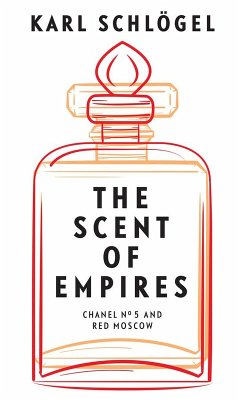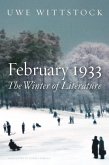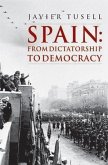Dieser Download kann aus rechtlichen Gründen nur mit Rechnungsadresse in A, B, BG, CY, CZ, D, DK, EW, E, FIN, F, GR, HR, H, IRL, I, LT, L, LR, M, NL, PL, P, R, S, SLO, SK ausgeliefert werden.
Hinweis: Dieser Artikel kann nur an eine deutsche Lieferadresse ausgeliefert werden.
"Tantalising"
Financial Times
"Engrossing"
Morning Star
"Superb... a splendidly pungent area for exploration"
The Spectator
"Schlögel is a master storyteller."
Frankfurter Rundschau
"A fascinating journey through scent."
Neue Zürcher Zeitung am Sonntag
"This book demonstrates once again Karl Schlögel's remarkable ability to make the whole of society visible in the most inconspicuous details."
Süddeutsche Zeitung
"Schlögel has captured the scent of the 'Age of Extremes'' - too much may give you a headache but a short burst is stimulating and intoxicating."
Deutschlandfunk Kultur
"No historian I know combines creativity in conception and fastidiousness of research like Karl Schlögel. This book is a surprise and an education. It is also a great pleasure to read."
Timothy Snyder, Yale University
"'A drop of perfume can hold the entire history of the twentieth century', writes Karl Schlögel - and so it does. In this elegant, enticing, slim book, Schlögel, one of the great historians of the Soviet experiment, shifts his gaze to the world of luxury scents. With grace and intent, he moves the reader between a convent orphanage in France and an impoverished shtetl in the Pale of Settlement, between Parisian salons and Politburo meetings at the Kremlin. Bolshevism, Nazism and Stalinism emerge as olfactory experiences, in which the fragrant and the putrid are not easily uncoupled."
Marci Shore, author of The Taste of Ashes: The Afterlife of Totalitarianism in Eastern Europe
"a tale of revolution, war and spies"
The Sydney Morning Herald
"a compelling story full of twists and tragedies... fascinating."
Bois De Jasmin
"A captivating historical account of the personal lives and political intrigue surrounding two perfumery legends."
Beauty Matter
"There is much to praise about The Scent of Empires, but above all Schlögel's ability to breathe new life into well-trodden avenues of historical study is particularly commendable."
The Russian Review









